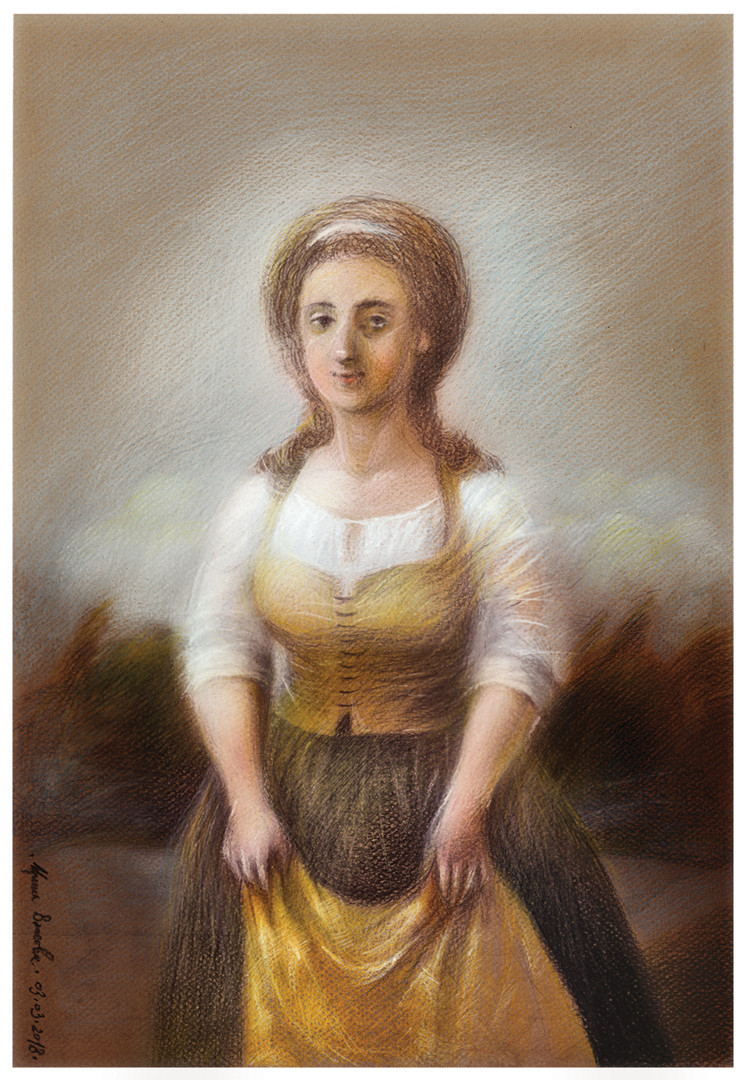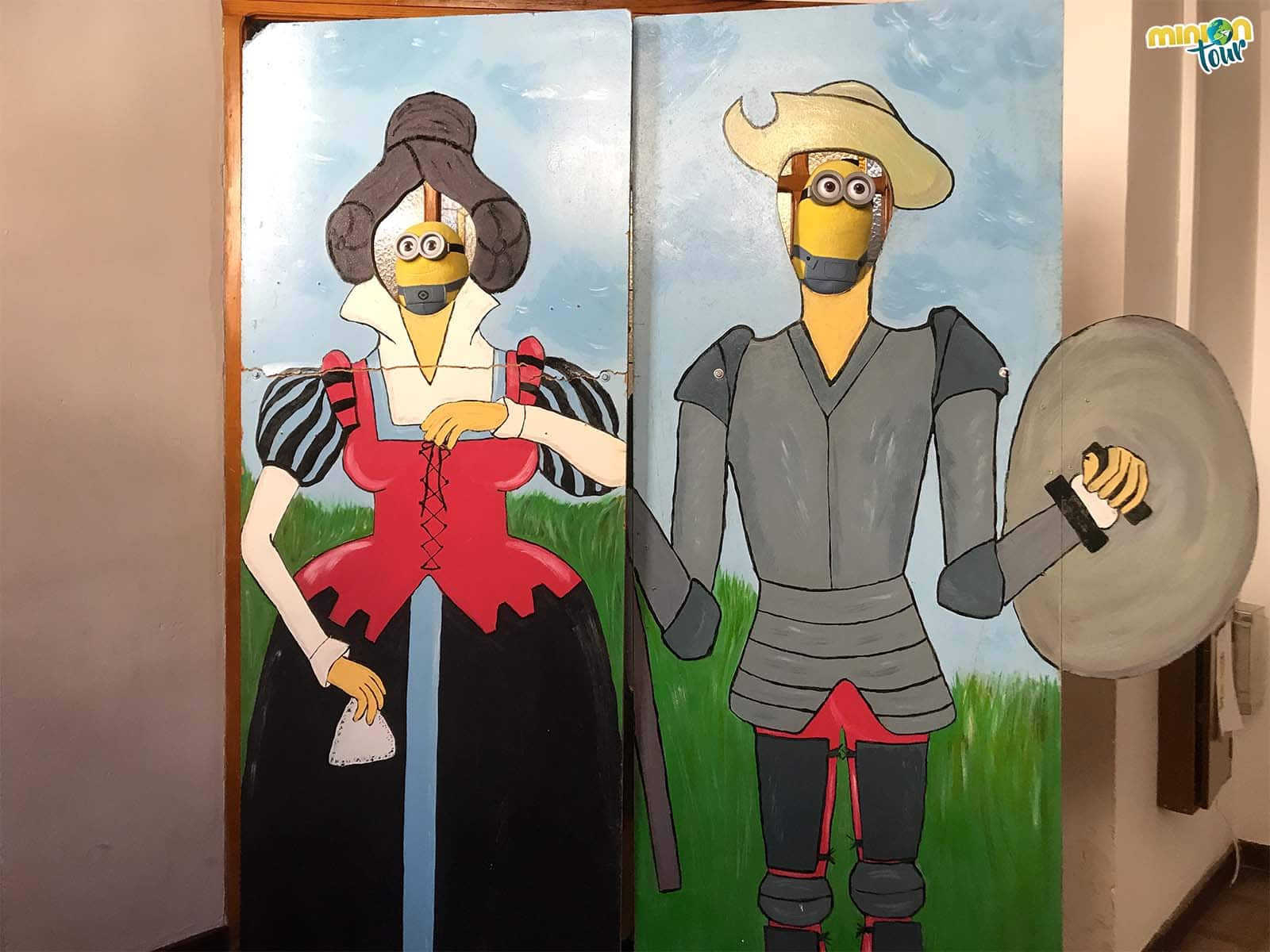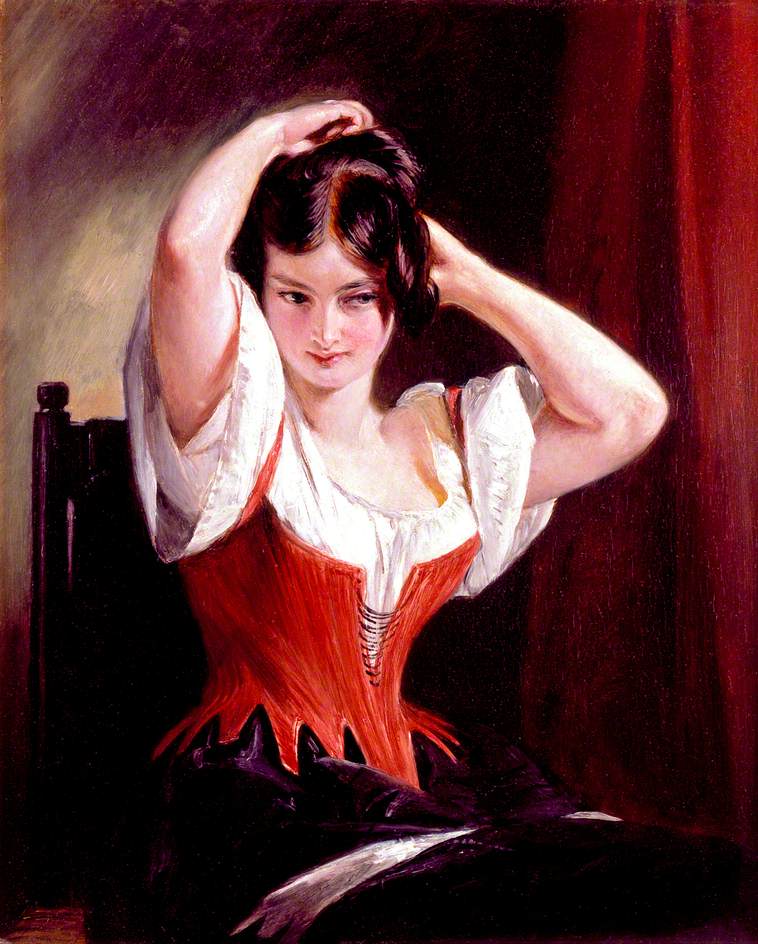
Dulcinea del Toboso. Drawing by Irene Vlassova Artmajeur
The fanciful aristocratic name 'Dulcinea Del Toboso' was given by Don Quixote to a pretty peasant woman. The eccentric Don believed that he was her protector and she was a 'great lady or Princess'. She was unaware of his fantasies. Object details. Categories: Paintings. Access_to_Images 2003. SCRAN.

Dulcinea del Toboso Ínsula Barañaria
Dulcinea del Toboso is a fictional character who is unseen in Miguel de Cervantes ' novel Don Quijote. Don Quijote believes he must have a lady, under the mistaken view that chivalry requires it. [1] : 117 [2] As he does not have one, he invents her, making her the very model of female perfection: " [h]er name is Dulcinea, her country El Toboso.
AULA DE SUPERACIÓN CAPÍTULO 24. DULCINEA DEL TOBOSO
Essay examples. Dulcinea del Toboso is a character in the novel Don Quixote by Miguel de Cervantes. She is the object of Don Quixote's affections, and he often refers to her as his "lady". Dulcinea is a peasant girl from the village of Toboso, and her real name is Aldonza Lorenzo.

Don Quijote Vaeltavan ritarikunnan kukka, asetoimen säteilevä valo
Spanish. " Dulcinea del Toboso " (real name Aldonza Lorenzo) is a fictional character who is unseen in Miguel de Cervantes ' novel Don Quixote. Seeking the traditions of the knights-errant of old, Don Quixote finds a true love whom he calls Dulcinea. She is a simple peasant in his home town, but Quixote imagines her to be the most beautiful of.

¿Nos a buscar a Dulcinea en El Toboso?
Dulcinea, fictional character in the two-part picaresque novel Don Quixote (Part I, 1605; Part II, 1615) by Miguel de Cervantes. Aldonza Lorenzo, a sturdy Spanish peasant girl, is renamed Dulcinea by the crazed knight-errant Don Quixote when he selects her to be his lady. Don Quixote perceives

DULCINEA DEL TOBOSO Dulcinea del Toboso Character, Fictional characters
Don Quixote, Chapter XXV. The complexities and dualities of Don Quixote's character are apparent from the. very first sentence of this passage. Don Quixote's statement that "for what I want of. Dulcinea of El Toboso, she is as good as the greatest princess in the land," (Chapter.

Dulcinea del Toboso William Rendon Cano
Dulcinea del Toboso. Dulcinea del Toboso is not a real person, and she never appears in all of the books. However, this lovely woman exists in mind and fantasy of the main hero. It is the main motivator of everything he does. Her real name was Aldonza Lorenzo, but this didn't sound romantic for the main hero's idea of knighthood and glory.

Dulcinea del Toboso Don Quijote Film
Dulcinea del Toboso is a fictional character who is unseen in Miguel de Cervantes' novel Don Quijote. Don Quijote believes he must have a lady, under the mistaken view that chivalry requires it.: 117 As he does not have one, he invents her, making her the very model of female perfection: "er name is Dulcinea, her country El Toboso, a village of La Mancha, her rank must be at least that of a.

AULA DE SUPERACIÓN CAPÍTULO 24. DULCINEA DEL TOBOSO
El edificio que alberga el Museo casa Dulcinea del Toboso conserva parte de su estructura original que se remonta al S. XVI y, a pesar de las diversas transformaciones experimentadas a lo largo del tiempo, conserva el carácter de la típica casa manchega perteneciente un labriego acomodado a un hidalgo con sus diversas dependencias: cocina, patio, molino, bodega, corrales, pozos, etc.

Brillante etiqueta Estoy orgulloso descripción de dulcinea en el
Dulcinea del Toboso es un personaje ficticio de la novela El ingenioso hidalgo don Quijote de la Mancha, [1] escrita por Miguel de Cervantes. Mujer imaginaria y perfecta corporeizada en otros personajes e inspirada en la campesina Aldonza Lorenzo, hija de Lorenzo Corchuelo y Aldonza Nogales, Dulcinea es la encarnación de «la Belleza y la Virtud». [ 2 ]
AULA DE SUPERACIÓN CAPÍTULO 24. DULCINEA DEL TOBOSO
Dulcinea del Toboso is not a real person, and she never actually makes an appearance in all of Don Quixote. However, the lovely lady does exist as a powerful fantasy in the mind of Don Quixote, and she motivates nearly everything he does. The first thing we ever hear about Dulcinea is that her real name is Aldonza Lorenzo.
AULA DE SUPERACIÓN CAPÍTULO 24. DULCINEA DEL TOBOSO
Dulcinea del Toboso Character Analysis. Quixote 's beloved. On the one hand, she is a hearty peasant girl named Aldonza de Lorenzo from a neighboring village. On the other hand, she is a beautiful, ethereal princess, endowed with every possible feminine virtue and beauty. She is the height of Quixote's fantasies, the center of his chivalrous.

La dulce mi enemiga, por Saúl Figueredo
Dulcinea del Toboso Victoria and Albert Museum. 73 more. Dulcinea del Toboso by Charles Robert Leslie (1794-1859), 1839, from Paintings Collection.

AULA DE SUPERACIÓN CAPÍTULO 24. DULCINEA DEL TOBOSO
Dulcinea del Toboso. The unseen, unknown inspiration for all of Don Quixote's exploits, Dulcinea, we are told, is a simple peasant woman who has no knowledge of the valorous deeds that Don Quixote commits in her name. We never meet Dulcinea in the novel, and on the two occasions when it seems she might appear, some trickery keeps her away.

Retrato de Aldonza Lorenzo. El encantamiento de Dulcinea Banco de
Dulcinea del Toboso is a fictional character who is unseen in Miguel de Cervantes' novel Don Quijote. Don Quijote believes he must have a lady, under the mistaken view that chivalry requires it.As he does not have one, he invents her, making her the very model of female perfection: "[h]er name is Dulcinea, her country El Toboso, a village of La Mancha, her rank must be at least that of a.

AULA DE SUPERACIÓN CAPÍTULO 24. DULCINEA DEL TOBOSO
Dulcinea. Dulcinea is the name given by the self-proclaimed knight-errant Don Quixote to his imaginary beloved in Miguel de Cervantes 's novel Don Quixote (Part One, 1605; Part Two, 1615). Having read countless novels of chivalry, a middle-aged man with a propensity for extravagant fantasy renames himself Don Quixote and decides to become a.